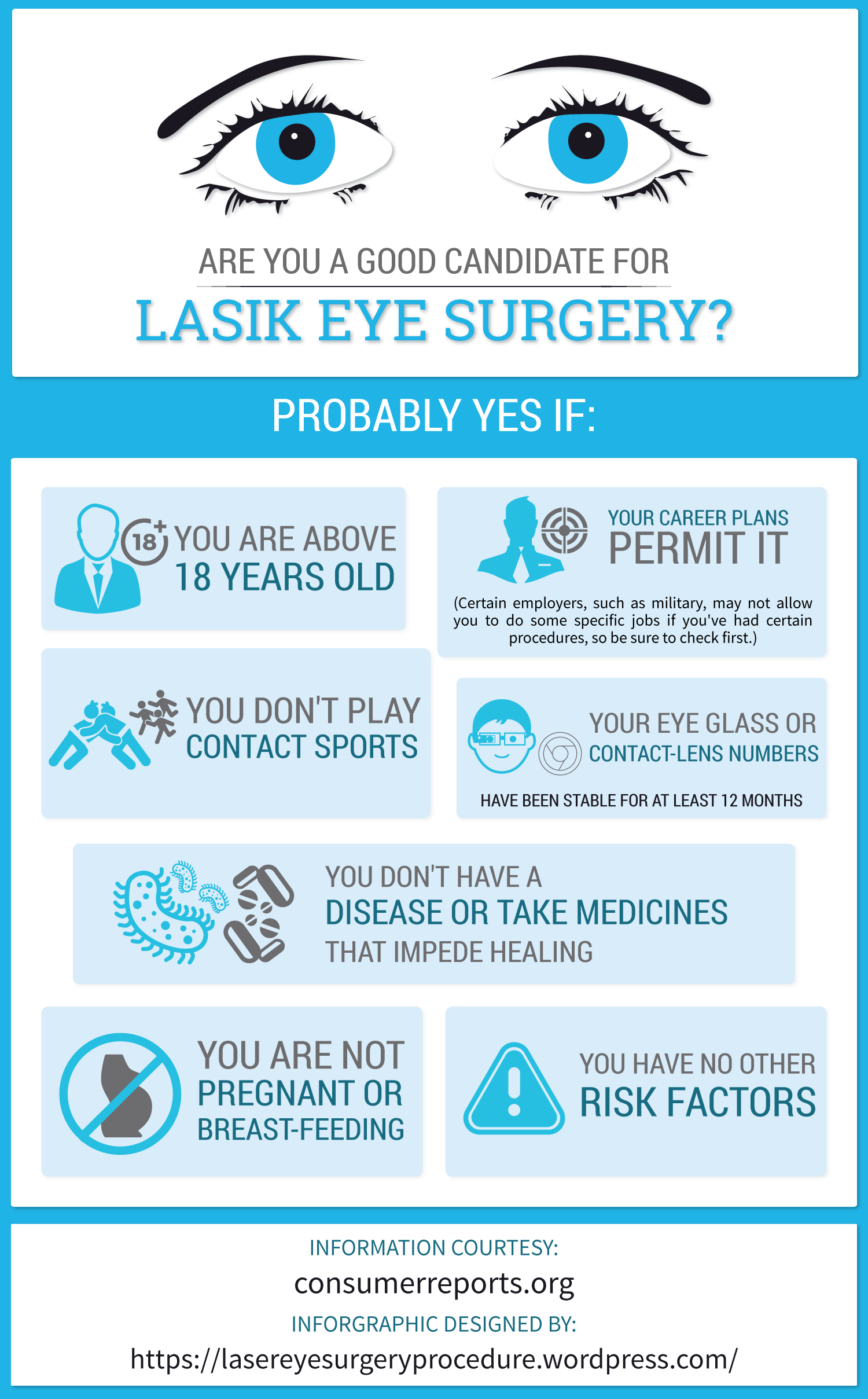Is SMILE Eye Surgical Procedure Right For You? Key Considerations And Insights
Is SMILE Eye Surgical Procedure Right For You? Key Considerations And Insights
Blog Article
Personnel Writer-Frederiksen Mooney
If you're pondering SMILE eye surgical procedure, ponder this: are you prepared to welcome possible aesthetic freedom, or does the thought of any type of risks make you think twice? Suggested Reading will rest on a careful balance of weighing the benefits against the uncertainties. It's vital to delve much deeper right into the nuances of SMILE surgery to make an educated selection that straightens with your aesthetic goals.
Recognizing SMILE Eye Surgical Treatment
When considering SMILE Eye Surgery, it is necessary to comprehend the procedure and its benefits. SMILE, which stands for Tiny Incision Lenticule Removal, is a minimally intrusive laser eye surgery that fixes typical vision issues like nearsightedness (nearsightedness).
Throughout the treatment, your eye doctor will utilize a femtosecond laser to develop a tiny laceration in your cornea. Via this incision, a tiny disc of cells called a lenticule is removed, reshaping the cornea and remedying your vision.
One of the crucial advantages of SMILE Eye Surgery is its fast healing time. Numerous clients experience improved vision within a day or 2 after the treatment, with very little discomfort.
Additionally, SMILE is recognized for its high success rate in giving lasting vision adjustment. Unlike LASIK, SMILE does not require the production of a flap in the cornea, minimizing the danger of issues and enabling a more secure corneal framework post-surgery.
Comprehending the procedure and its advantages is essential when taking into consideration SMILE Eye Surgical procedure for vision adjustment.
Pros and Cons of SMILE
Thinking About SMILE Eye Surgery for vision modification features numerous benefits and potential disadvantages.
Among the primary pros of SMILE is its minimally intrusive nature, as it includes a small laceration and usually causes fast recovery times. The procedure is likewise recognized for creating marginal pain and completely dry eye signs post-surgery compared to other vision improvement techniques. Furthermore, SMILE has actually been shown to give exceptional visual results, with many people attaining 20/20 vision or much better.
On the other hand, a possible disadvantage of SMILE is that it might not be suitable for people with serious refractive errors, as the therapy range is somewhat restricted compared to LASIK. One more consideration is that the learning contour for surgeons applying SMILE can affect the schedule of skilled companies in certain locations.
It is very important to consider these pros and cons carefully when determining if SMILE is the best choice for your vision improvement requirements.
Establishing Qualification for SMILE
To identify if you're qualified for SMILE eye surgical treatment, your ophthalmologist will certainly perform an extensive evaluation of your eye health and vision requirements. Throughout this evaluation, factors such as the security of your vision prescription, the density of your cornea, and the total health of your eyes will be analyzed.
Normally, prospects for SMILE are over 22 years of ages, have a stable vision prescription for at least a year, and have healthy corneas without problems like keratoconus.
Your eye doctor will likewise consider your overall eye health, any existing eye problems, and your way of life requires to determine if SMILE is the ideal selection for you. It's essential to communicate any particular visual requirements or concerns you may have during this examination to make certain that the therapy lines up with your assumptions.
If you aren't eligible for SMILE, your optometrist might advise alternative vision modification alternatives that much better match your individual requirements and eye wellness status.
Conclusion
Ultimately, determining whether SMILE eye surgical procedure is right for you calls for cautious factor to consider of your specific eye health and visual requirements. Seek advice from your eye doctor to establish your eligibility for the treatment and evaluate the possible benefits and downsides. How Much Does LASIK Usually Cost in mind to connect any kind of worries or concerns you may have during the analysis process to make an enlightened decision about your vision improvement choices.
